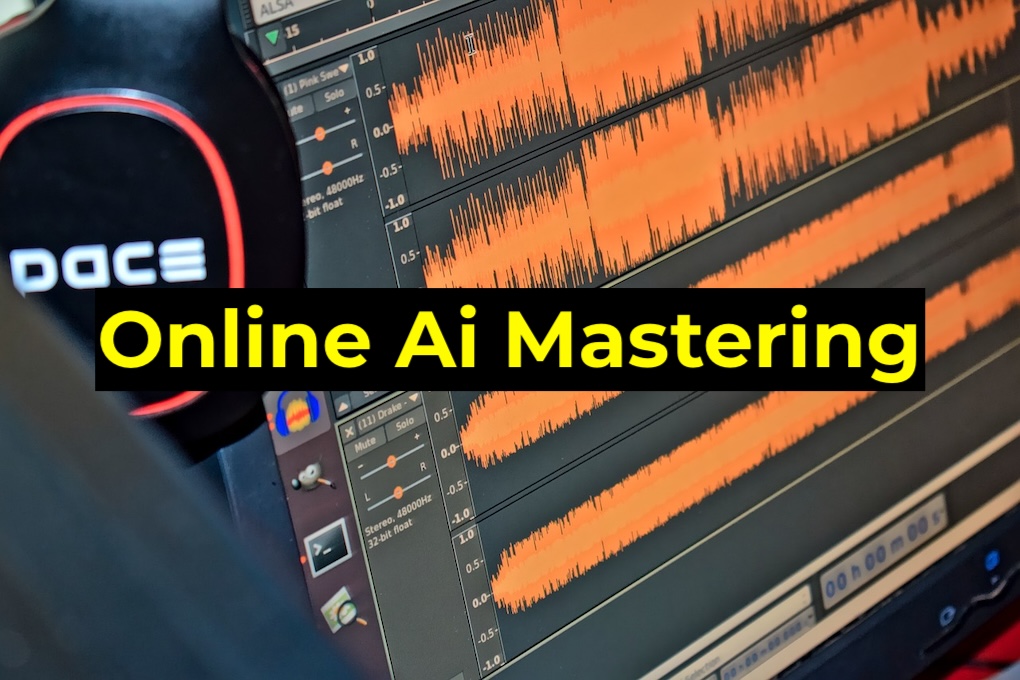- in Production by Bobby Owsinski
A Look At Online Ai Mastering And Its Limitations
If there’s one place where Ai has made great strides in recent years, it’s mastering. This excerpt from The Musician’s Ai Handbook takes a look at the various online Ai mastering services, as well as some of the limitations they currently have.

“Like mixing, mastering costs vary quite a bit. A job by an A-list mastering engineer can start anywhere from about $250 to more than $500 an hour. As a result, you can expect the overall price for mastering an album at a top facility to come in anywhere from around $2,000 to around $10,000 or more, especially if specialized masters for vinyl, CD or Apple Digital Masters are required.
There are now some very good alternatives to spending a lot of dough on mastering however. By far the cheapest is to use one of the automated online mastering services like Landr, eMastered or Cloudbounce. The prices of these services vary anywhere from as low as $4 a song to a monthly fee of around $100, where you can upload an unlimited number of songs.
Depending upon the quality of a mix (a better one will produce a better final product), the results can be surprisingly good. The Ai mastering service will usually allow you to try different mastering settings for just a single price. On some platforms you’ll also be able to choose from multiple revisions without being charged again as well.
There are now many Ai mastering platforms available but Landr has been around the longest. It was launched back in 2014 and has benefited from the most training, having created masters for over 5 million songs since them. As we know, training an Ai is all important and the larger the dataset the better job it does. Landr has certainly gotten better through the years and now approaches results that are not that far off from a human mastering engineer.
There many other mastering platforms that have been released in the last few years. eMastered, Cloudbounce, Maaster, Songmastr, Soundborg, Master Channel and Bakauge are just a few that have vied for market share in this area. Plugin developers like Waves (Waves Mastering), Slate Digital (Virtu) and Plugin Alliance (mastering.studio) are among the manufacturers that have entered the online mastering market as well.
Limitations To Be Aware Of
While online mastering can produce surprisingly good results, there are also some caveats to be aware of. Some platforms are not equipped to master an entire album, so you have to master each song by itself. The downside to this is that all the songs can have a slightly different sound and level as a result. This is one area where mastering engineers are particularly good at what they do and it’s hard for a mastering Ai to beat them at making a group of songs sound similar with similar levels.
Even the Ai mastering services that will master an album in its entirety will not creatively insert spreads (the time in between songs) and fades in between songs. The timing of the spreads can make a difference in how the songs flow from one another, and so far there’s not an online mastering platform that will do crossfades between songs. Of course, this is only important for physical products like vinyl and CDs and and doesn’t apply to songs that are intended only for streaming.
Another thing to keep in mind is that many Ai mastering platforms have a maximum resolution of 44.1kHz/16 bit. While that works fine for a CD or for submission to a streaming distributor, it may not satisfy the needs of a record label or high-resolution distributor like Apple Music or Tidal, who require at least 24 bit files with a sampling rate at 96kHz or higher. (NOTE: If you originally recorded your tracks at 44.1k or 48kHz, you gain nothing by exporting to a higher sample rate.)
In fact, Apple Music has a special high-resolution program called Apple Digital Masters, which requires an Apple-certified mastering engineer for submission to the platform.
Yet another potential downside is if you’re planning on pressing vinyl. A mastering engineer will normally create a separate master that’s not as loud and not as bass heavy to ensure that the disc cutting goes well. As of now, Ai mastering platforms do not have this feature, although you can experiment with alternative settings to obtain a separate master that will work for vinyl.
You can read more from The Musician’s Ai Handbook and my other books on the excerpt section of bobbyowsinski.com.

